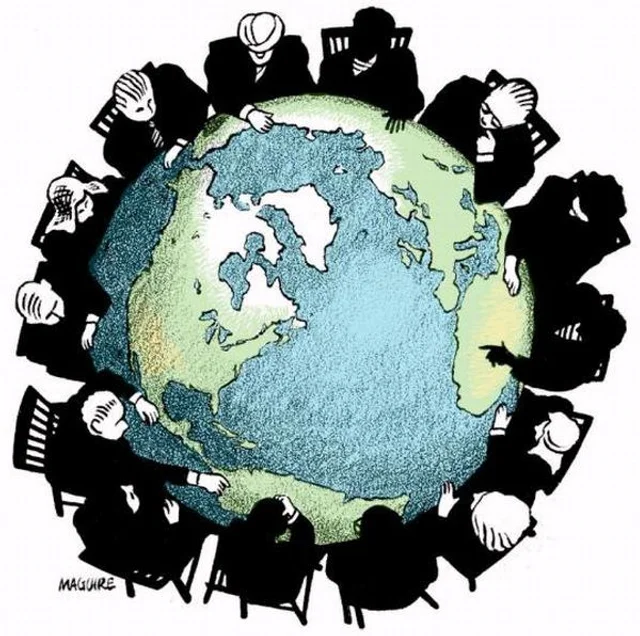A Closer Look at Identity Politics in Political Discourse

The Impact of Identity Politics on Political Discourse and Outcomes
Identity politics has become a prominent force in shaping political discourse and influencing the outcomes of elections and policy decisions in recent years. The concept of identity politics centers around the idea that individuals form their political beliefs and affiliations based on their various social identities, such as race, gender, sexual orientation, religion, and more. While identity politics has led to increased visibility and recognition of historically marginalized groups, it has also sparked debates and controversies. In this blog post, we will delve into the role of identity politics in contemporary politics, discussing both its positive and negative impacts.
Understanding Identity Politics
Identity politics is often misunderstood or oversimplified. It doesn't solely refer to a divisive or exclusionary approach to politics but encompasses a broader understanding of how individuals' identities intersect with their political views and experiences. People's identities, shaped by their backgrounds and experiences, influence their perspectives on a wide range of issues, including economic policies, social justice, healthcare, immigration, and more.
Positive Aspects of Identity Politics
Representation: Identity politics has played a crucial role in increasing representation for marginalized groups. By emphasizing the importance of diverse voices in politics, it has led to the election of leaders who better understand and advocate for the needs and concerns of underrepresented communities.
Social Justice: Identity politics has been instrumental in advancing social justice causes. Movements like Black Lives Matter and LGBTQ+ rights have gained significant traction by drawing attention to the unique challenges faced by these communities and demanding change.
Policy Priorities: Identity politics has helped shift policy priorities. For example, it has pushed for policies addressing issues like systemic racism, gender inequality, and discrimination against religious and ethnic minorities.
Empowerment: By encouraging individuals to embrace their identities, identity politics empowers people to take an active role in politics and advocate for their rights. This has led to greater civic engagement among marginalized groups.
Negative Aspects of Identity Politics
Divisiveness: Critics argue that identity politics can be divisive and polarizing. Focusing too heavily on individual identities can create a "zero-sum" mentality, where the gains of one group are seen as losses for another.
Identity-Based Stereotyping: There is a concern that identity politics can perpetuate stereotypes, as it can sometimes reduce complex issues to simplistic identity-based narratives, which can hinder constructive dialogue.
Overlooking Common Ground: Excessive emphasis on identity can overshadow shared interests and common ground. In the pursuit of identity-specific goals, the broader societal issues that affect everyone may be neglected.
Political Weaponization: Identity politics can be used as a political weapon, where politicians exploit identity-based fears and prejudices to gain support or divert attention from other pressing issues.
The Role of Identity Politics in Political Outcomes
Identity politics has undeniably influenced political outcomes in various ways. It has contributed to the election of diverse leaders and the passage of policies that promote social justice and equity. However, it has also been used to sow division and exploit identity-based grievances for political gain.
In recent years, the impact of identity politics on electoral outcomes has been particularly pronounced. Voters increasingly identify with candidates and parties that align with their own identities and values. This phenomenon can lead to "identity echo chambers," where people primarily consume news and engage with individuals who reinforce their existing beliefs.
The Evolution of Identity Politics
Identity politics has evolved over time and adapted to the changing social and political landscape. While it has been a prominent force in recent years, its roots can be traced back to various social justice movements of the 20th century, including the civil rights movement, feminist movement, and LGBTQ+ rights movement. These movements highlighted the intersection of identity and oppression, paving the way for a more nuanced understanding of how individuals' identities shape their political experiences.
One of the key developments in the evolution of identity politics is the recognition of intersectionality. Coined by Kimberl? Crenshaw, intersectionality acknowledges that individuals possess multiple identities, and their experiences of privilege and oppression are not solely determined by a single identity (e.g., race or gender). Instead, these identities intersect and interact in complex ways, influencing one's overall experience in society.
Intersectionality has broadened the scope of identity politics, encouraging a more comprehensive examination of the ways in which various identities intersect and contribute to a person's social and political perspective. This nuanced approach has been instrumental in addressing the unique challenges faced by individuals who belong to multiple marginalized groups.
The Impact on Political Discourse
Identity politics has significantly shaped political discourse in the following ways:
Diverse Voices: Identity politics has elevated the voices of historically marginalized communities, allowing them to share their lived experiences and advocate for change. This has enriched political discussions by providing insights into issues that may have been overlooked in the past.
Policy Debates: Many policy debates now revolve around identity-related issues, such as immigration reform, gender equality, racial justice, and LGBTQ+ rights. These discussions have forced policymakers to address the concerns of these communities and propose solutions.
Election Campaigns: Political candidates increasingly emphasize their alignment with specific identity groups to secure votes. This has led to candidates tailoring their platforms to address the unique needs and interests of various identity-based constituencies.
Media Coverage: Identity politics has influenced media coverage, with news outlets dedicating more attention to stories related to identity-based struggles and achievements. This increased visibility has helped bring these issues to the forefront of public consciousness.
Social Movements: Identity politics has fueled the growth of social movements advocating for change, such as the #MeToo movement, which addresses issues of sexual harassment and assault, or the climate justice movement, which highlights environmental concerns impacting vulnerable communities.
The Future of Identity Politics
The future of identity politics remains uncertain, but it is likely to continue playing a significant role in political discourse and outcomes. As society becomes more diverse and interconnected, issues related to identity will remain at the forefront of political discussions. However, it is essential to navigate the challenges posed by identity politics and strike a balance between recognizing the importance of individual identities and fostering unity and cooperation.
To ensure that identity politics contributes positively to political discourse and outcomes, it is important to:
Promote Dialogue: Encourage open and respectful dialogue between individuals with diverse identities and perspectives to foster understanding and collaboration.
Emphasize Common Goals: While recognizing the unique challenges faced by different identity groups, also emphasize the common goals and values that can unite people from various backgrounds.
Combat Polarization: Work to reduce polarization by finding common ground and seeking compromises that benefit all members of society.
Empower Marginalized Voices: Continue to empower marginalized voices and support policies that address systemic inequalities and discrimination.
Identity politics is a dynamic and influential force in contemporary politics. Its evolution and impact on political discourse and outcomes will continue to shape the political landscape for years to come. It is up to society, political leaders, and individuals to navigate the challenges and opportunities presented by identity politics in a way that promotes social justice, inclusivity, and unity.
What's Your Reaction?
















